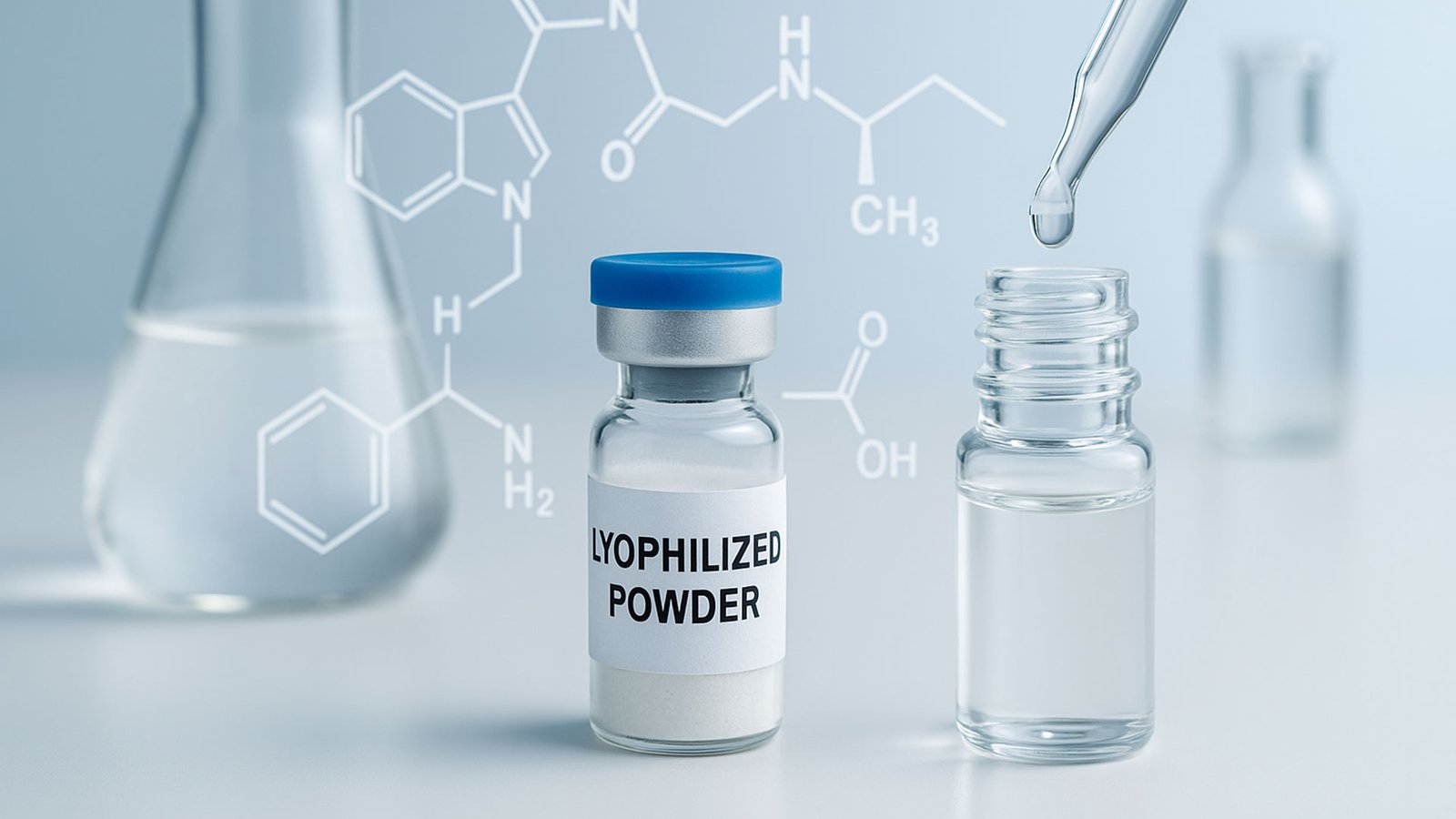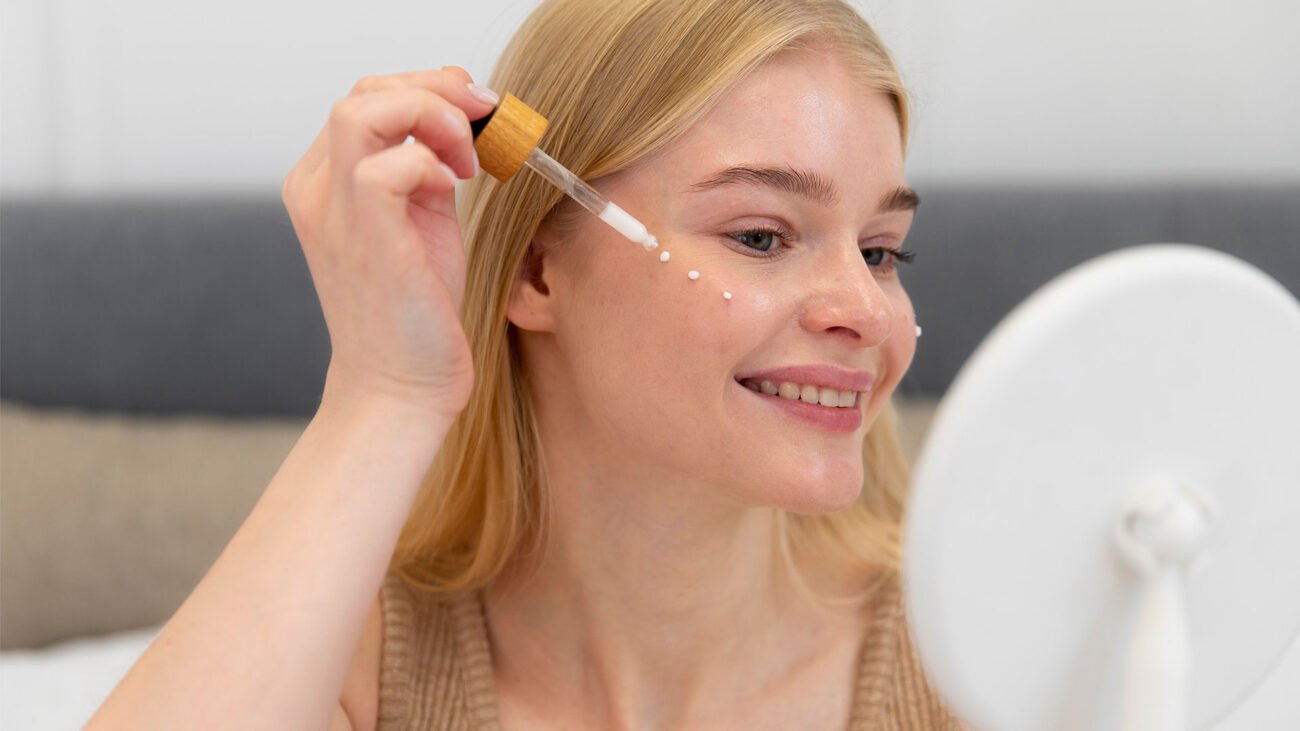- Peptide

Advanced Variable products with swatches
Products variations colors and images without any additional plugins.
- Organic Intermediates
- Inorganic Compound
- Cosmetic Raw Materials
What Are Peptides? Anti-Aging & Skincare Benefits

Peptides have become a buzzword in both skincare and ingredient science, but many people still ask: What are peptides, and why are they so important? Whether you’re exploring the benefits of anti-aging skincare or sourcing high-purity raw materials, peptides play a powerful role. In this article, we’ll break down what peptides are, the different types, and how they’re used in cosmetics and advanced formulations—especially when it comes to selecting the right anti aging peptide for your skincare needs.
Let’s explore how peptides are transforming both everyday skincare routines and next-gen formulation strategies.
What Are Peptides?
Peptides are short chains of amino acids—the basic building blocks of proteins. When these chains link together in specific ways, they send signals to the body, stimulate biological processes, or act as messengers in the skin and internal systems. Unlike full-sized proteins, peptides are smaller and can be more easily absorbed and used by the body.
They occur naturally in the human body but are also synthesized for commercial use. Synthetic peptides can be designed for specific purposes, including skincare treatments or as active components in high-performance formulations. That makes them essential tools for cosmetic chemists, researchers, and ingredient developers alike.
Types of Peptides in Skincare and Anti-Aging Formulations
Understanding how each peptide type functions can help you choose the right one for your formulation or product line. Let’s explore the most common peptide types used in both beauty and advanced ingredient applications:
| Type of Peptide | Function |
| Signal peptides | Stimulate collagen and elastin production, improving skin firmness |
| Carrier peptides | Transport trace minerals like copper to support skin renewal |
| Enzyme-inhibitor peptides | Slow down degradation of structural proteins to maintain youthful skin |
| Neuropeptides | Relax facial muscles for smoother skin appearance |
These classifications are especially relevant when selecting an anti aging peptide to achieve noticeable results in skincare.Peptides in Skincare: Benefits and Applications
Peptides in Skincare: Benefits and Applications
In skincare, peptides are widely known for their anti-aging properties. An anti aging peptide can reduce the appearance of wrinkles, improve elasticity, and support overall skin renewal. Because peptides are small enough to penetrate the skin, they deliver targeted results without the irritation associated with more aggressive treatments.

Popular cosmetic peptides include:
- Palmitoyl Tripeptide-1: Helps improve skin texture and reduce wrinkles.
- Matrixyl®: A well-known compound used in anti-aging formulations.
- Copper peptides: Promote wound healing and skin repair.
These classifications are especially relevant when selecting an anti aging peptide to achieve noticeable results in skincare.
Peptides in High-Performance Formulations
Beyond skincare, peptides are increasingly used in specialized formulations across industries such as biomedical research, nutritional science, and delivery systems. High-purity research-grade peptides are valued for their structural stability and targeted functionality. These materials are often used in:
- Precision delivery systems
- Controlled-release formulations
- Biocompatibility and material science studies
What sets high-grade peptides apart is their purity, consistency, and ability to interact with biological systems in a predictable way. Rather than acting as therapeutic agents, these peptides serve as functional components in advanced product development.
What Buyers Should Know When Sourcing Peptides
If you’re a formulator, researcher, or buyer, choosing the right peptides is critical. Here are key considerations:
- Purity: Look for peptides with a purity of 98% or higher to ensure reliability.
- Documentatio: Always request COA (Certificate of Analysis), HPLC data, and MSDS for verification.
- Storage: Peptides are sensitive to moisture and heat. Store them in sealed containers, ideally at 2–8°C.
- Supplier Reputation: Work with experienced suppliers that understand documentation requirements and provide technical support.
Choosing high-quality peptides not only ensures effectiveness but also builds trust with partners and regulators. If you’re sourcing an anti aging peptide for cosmetic use, make sure the documentation matches your formulation’s needs.
Frequently Asked Questions
Q1: Are peptides better than retinol for anti-aging?
A: Peptides are generally gentler than retinol and offer targeted anti-aging peptide benefits like boosting collagen production without causing dryness or irritation.
Q2: Can peptides be used daily in skincare?
A: Yes, most peptides are safe for daily use and are often found in serums, creams, and eye treatments for long-term benefits.
Q3: What makes high-purity peptides different from basic cosmetic peptides?
A: High-purity peptides undergo more rigorous purification and testing. They’re ideal for advanced formulations that require consistent performance.
Conclusion
Peptides are more than just a trendy ingredient—they’re a scientifically backed solution in both beauty and formulation science. Whether you’re creating an anti aging peptide cream or developing a next-generation delivery system, understanding the different types and applications of peptides can help you make informed decisions.
So the next time you see “peptides” on a label or ingredient list, you’ll know it’s more than marketing. It’s a key element backed by science and designed for results.
Looking to source high-purity peptides for your formulation or product line?
Contact our team for specifications, technical data sheets, bulk pricing, or ingredient recommendations tailored to your needs.
Further Reading & Authoritative Resources
For readers interested in deeper insights into peptide science, formulation development, and cosmetic ingredient research, the following reputable sources are recommended:
- NIH – Peptides: Biological Activities and Therapeutic Applications: In-depth overview of peptide classifications, functions, and clinical potential.
- PubChem – Palmitoyl Tripeptide-1: Chemical structure and usage data of a well-known anti-aging peptide ingredient.
- ScienceDirect – Cosmetic Peptides: Development and Trends Review of peptide usage in cosmetic formulations and their efficacy.
- Journal of Cosmetic Dermatology – Clinical Efficacy of Peptide-based Skincare: Research-based analysis on how peptides improve skin appearance and texture.
- FDA – Inactive Ingredient Search for Approved Drug Products: Check ingredient use and status in approved formulations.




